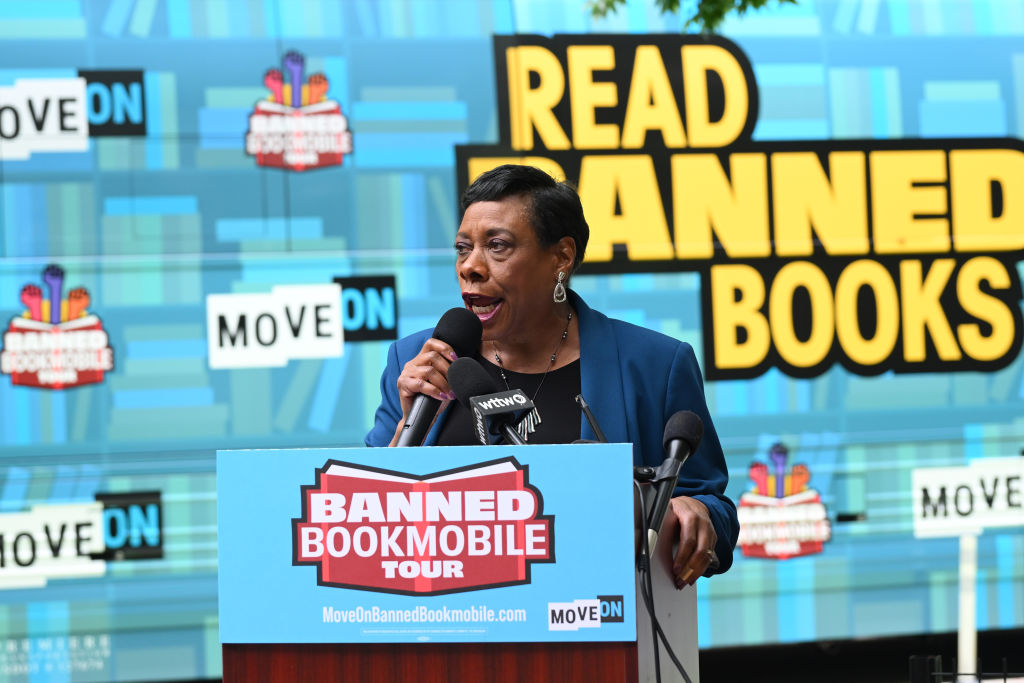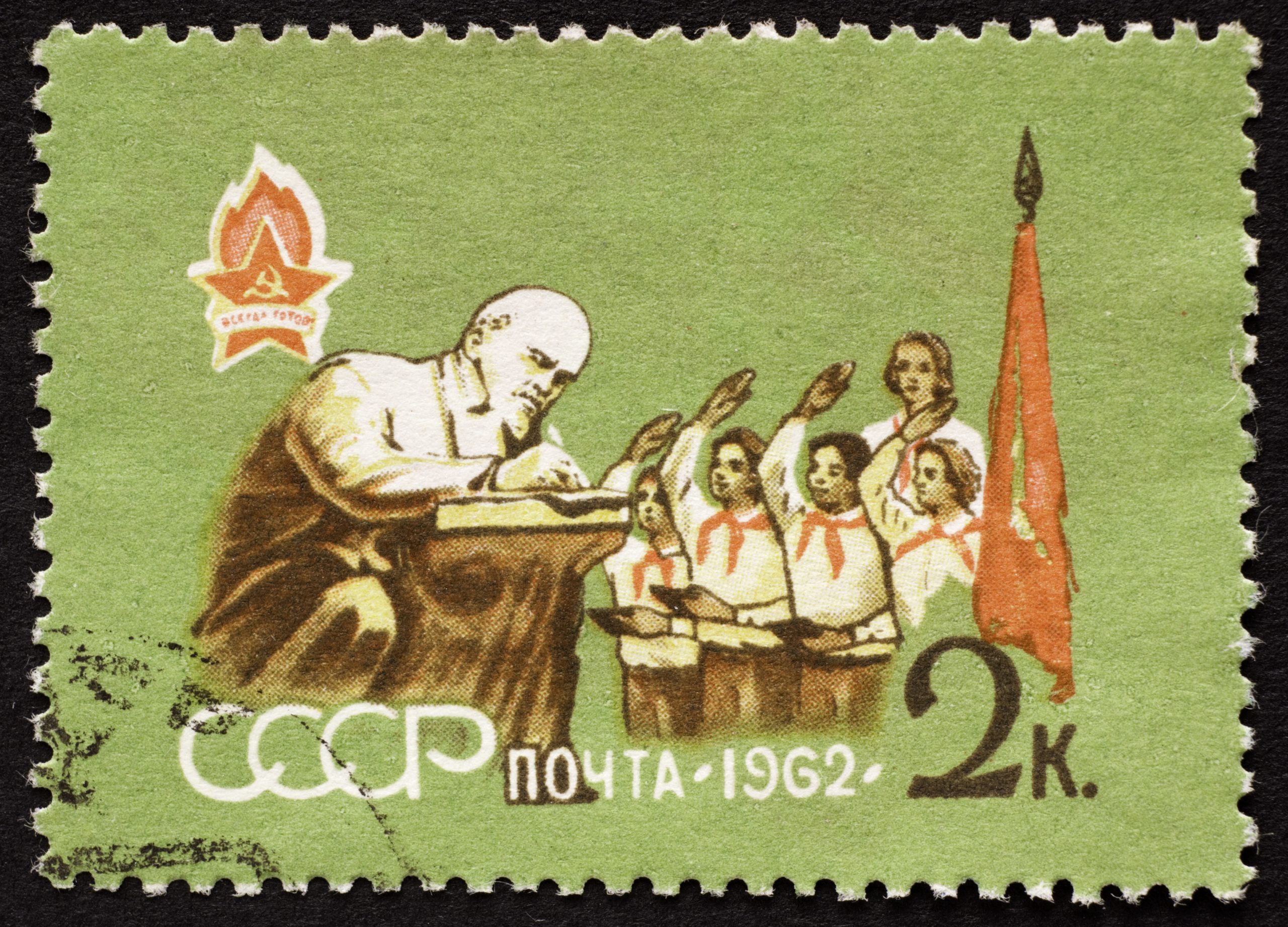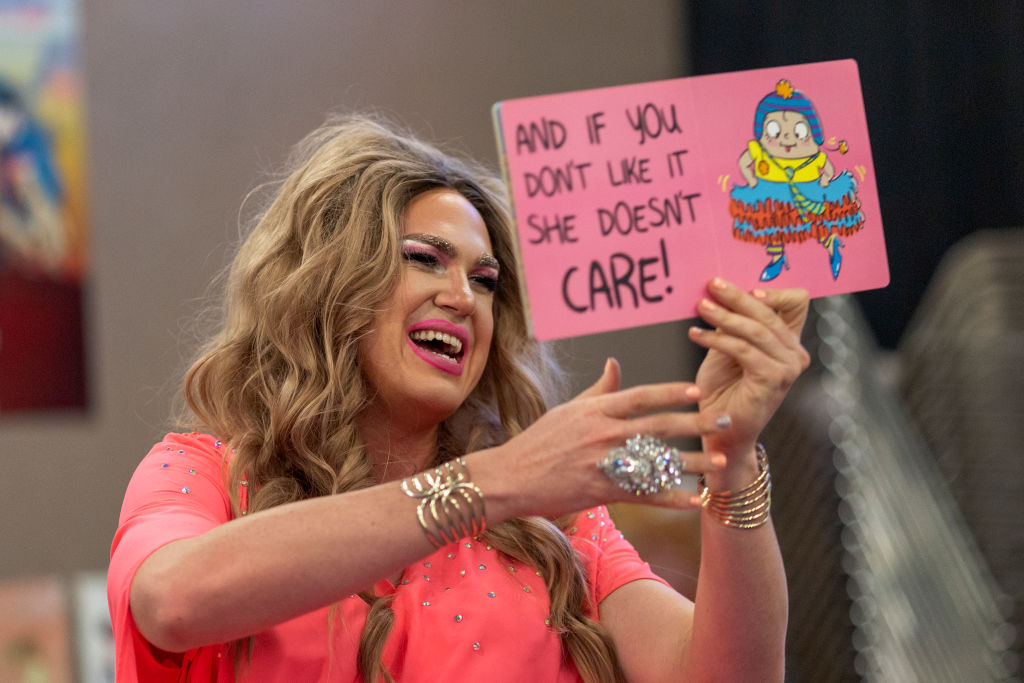Neo-Marxists are Communizing your children.
Czar Wars

The Biden Administration targets parents for trying to "ban" pornographic books.
As part of its “celebration of Pride Month,” the Biden-Harris Administration announced that the Department of Education’s Office of Civil Rights (OCR) will “appoint a new coordinator to address the growing threat that book bans pose.” The White House alleges that “book bans” can “create a hostile school environment [that] may violate federal civil rights laws.”
The creative new strategy has already been tested in Forsyth County, Georgia, where a federal government investigation found that district-level discussions about not including certain books in school libraries can create a hostile environment for students who associate with the identities portrayed in the materials being challenged. The Biden Administration’s new book czar is likely to launch similar investigations around the country. This will lead to a new level of federal micromanagement of K–12 education, undermining local school districts’ ability to curate educational resources that align with local priorities and sensibilities.
What activists deceptively characterize as “book bans” amount to routine decisions about what to teach or what books to include in school libraries. Asking whether materials are age-inappropriate is the basic, commonsense place to start when curating a library collection or developing a curriculum. Those decisions inevitably lead to including some materials and excluding others. Just as we do not teach calculus to third graders, materials that are pervasively vulgar or developmentally inappropriate for young children should not be acquired in the first place. The limited space on school shelves should be filled with materials that area families believe convey maximum educational benefit to students.
The timing of the announcement suggests the Biden Administration’s goal is to advance an increasingly radical LGBTQ agenda by promoting radical gender ideology and sexually explicit content in schools around the country. The Department’s investigatory strategy relies on promoting hype about “book bans” in public schools and libraries. In fact, what activists and political leaders on the Left characterize as a censorship epidemic proves that parental involvement in schools and local control over curricular decisions has never been more important.
“Book Bans”
The White House cites an American Library Association (ALA) report summarizing 1,269 challenges filed with K–12 and public libraries in 2022 to substantiate its claim that “2022 saw the highest number of book bans in 20 years.” But a challenge is not a removal, much less a “ban.” It is a request for librarians (or a review committee) to assess the appropriateness of a particular title.
Review processes exist to ensure that challenges are adjudicated consistently, according to established standards. Sometimes inappropriate books slip into school collections accidentally because librarians rely on publisher recommendations and award lists in the acquisition process. Reviews do not always result in the removal of a challenged book. Many petitions are rejected. Sometimes a book is restricted to older students or high school libraries. Review processes can be designed to minimize abuse, for example, by making it easy to dismiss challenges filed by serial petitioners who have a record of filing frivolous or baseless challenges.
So the American Library Association is falsely painting rising concern about the appropriateness of materials on public school library shelves as de facto evidence of a viewpoint discrimination epidemic. And the White House is capitalizing on the confusion to distract from the real issue—the content of the books being challenged.
Small wonder, then, that the ALA press release professing alarm about the volume of challenges makes zero mention of the titles drawing the attention of concerned parents. That information is buried in a separate and later release, one that the White House just happens not to cite.
Thirteen books make the ALA’s top-10 “most challenged” book list for 2022 (there was a four-way tie for 10th). As the association itself acknowledges, every title on its list is there because of sexually explicit content.
The most frequently challenged book, Gender Queer by Maia Kobabe, is a graphic novel that includes depictions of sexual intercourse between a bearded man and a boy, as well as images of young people experimenting with sex toys. This Book Is Gay, by Juno Dawson, explains “how sex apps work” to young people and directs them to Grindr to learn “who the nearest homosexuals are.” “Because they are near,” the book continues, “it is easy to meet up with them.” Lawn Boy, by Jonathan Evison, includes language so explicit that parents reading from it at school board meetings have been ruled out of order.
In other words, the Biden-Harris Administration is ringing civil rights alarms to keep outright pornographic materials in public school libraries and, in the case of instructions about using adult sex apps, books that present a clear danger. Why does the Biden-Harris Administration believe these materials are necessary to create a safe and inclusive elementary school environment for LGBTQ children? The government does not say.
The Biden Administration’s Book Czar
We do know from a recent Office of Civil Rights (OCR) investigation how the Biden Administration’s book czar will make it more difficult for local school boards and concerned families to remove sexually explicit content from school libraries.
In the Forsyth County Schools case, the superintendent authorized removing nine books from all libraries, and restricted six other books to high schools. A later, more formal review returned many of those books to school shelves, and throughout the process, administrators went to considerable lengths to avoid singling students out based on their group identities. This did not satisfy the Department of Education, which ultimately entered into a resolution agreement with the district requiring it to issue a statement committing to “promote diversity [through] school library materials,” provide “supportive measures” to students who feel “impacted by the environment surrounding the removal of books,” educate students about “how to file a complaint” with the government alleging discrimination or harassment, and conduct a climate assessment at each middle and high school to assess the “prevalence of harassment based on sex, race, color, or national origin.”
What exactly did the district do wrong? In a letter detailing its findings, the Department of Education’s civil rights division found fault with the challenge and removal process itself. Following the initial decision to remove several books, some parents “called for the removal of additional books.” Most “focused on sexually explicit content,” but “some comments focused on… gender identity and sexual orientation,” and “some parents made negative comments about diversity and inclusion or critical race theory.” That deliberation—among concerned parents — was the specific problem cited by the Department.
According to OCR, when parents voice concerns about the age-appropriateness of books containing sexually explicit content, it can “[create] a hostile environment for students” under Title VI of the Civil Rights Act, which prohibits race discrimination at schools that receive federal funding, and Title IX of the Education Amendments of 1972, which prohibit discrimination based on sex. In this case, OCR concluded that “the District’s responsive steps related to the book screening process… were insufficient to… ameliorate any resultant racially and sexually hostile environment.” Think about that: The Department of Education, which was established on the premise that the federal government would not seek to meddle in school curricula or undermine state and local authority in education, now treats parental input about age-appropriate materials as a potential violation of their children’s civil rights.
The government did not dispute that parents were interested in ensuring the materials in school libraries would confer educational benefits to students. Indeed, it expressly recognized that “the District limited its book screening process to sexually explicit material.” Still, OCR concluded that “communications at board meetings conveyed the impression that books were being screened to exclude diverse authors and characters, including people who are LGBTQI+ and authors who are not white, leading to increased fears and possibly harassment.”
Here Come the Feds
The Georgia example is a preview of the Biden Administration’s plan to radicalize public schools around the country and further erode state and local authority over public schools. Anytime concerned parents or school boards raise legitimate concerns about sexually explicit materials in public school libraries, radical activists will file civil rights complaints with the Department of Education. Many will be investigated for perfectly reasonable policies and actions designed to protect children, especially if the Biden Administration’s radical rewrite of Title IX goes into effect.
Schools investigated by OCR will be required to intensify highly politicized diversity, equity, and inclusion efforts in their resolution agreements to maintain access to federal aid. Other schools will simply cave to activist demands to avoid costly and reputation-damaging fights. Parents’ concerns will be dismissed, with school officials explaining that federal civil rights laws require them to supply their elementary school-aged children with pornographic materials.
The Biden Administration’s strategy to sexualize K–12 public schools under the guise of combating “books bans” is more subtle and sophisticated than unleashing the FBI on concerned parents branded as domestic extremists. But it has this much in common: For the Left today, parents are the enemy.
The American Mind presents a range of perspectives. Views are writers’ own and do not necessarily represent those of The Claremont Institute.
The American Mind is a publication of the Claremont Institute, a non-profit 501(c)(3) organization, dedicated to restoring the principles of the American Founding to their rightful, preeminent authority in our national life. Interested in supporting our work? Gifts to the Claremont Institute are tax-deductible.
Some things can’t be taken away.
Direct cash grants enable Washington to circumvent local control of cultural institutions.



